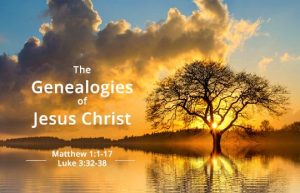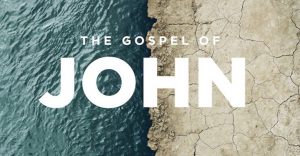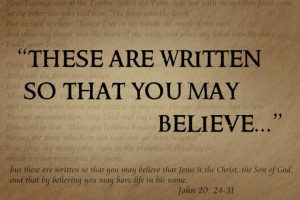
Shownotes
Welcome to Day 1366 of our Wisdom-Trek, and thank you for joining me.
I am Guthrie Chamberlain, Your Guide to Wisdom
Mastering the Bible – Biblical Genealogies and John's Gospel is Different – Worldview Wednesday
Wisdom - the final frontier to true knowledge. Welcome to Wisdom-Trek where our mission is to create a legacy of wisdom, to seek out discernment and insights, and to boldly grow where few have chosen to grow before.
Hello, my friend, I am Guthrie Chamberlain, your captain on our journey to increase wisdom and create a living legacy. Thank you for joining us today as we explore wisdom on our 2nd millennium of podcasts. Today is Day 1366 of our trek, and it is Worldview Wednesday. Creating a Biblical Worldview is essential to have a proper perspective on today’s current events.
To establish a Biblical Worldview, you must have a proper understanding of God and His Word. Our focus for the next several months on Worldview Wednesday is Mastering the Bible, through a series of brief insights. These insights are extracted from a book of the same title from one of today’s most prominent Hebrew Scholars, Dr. Micheal S. Heiser. This book is a collection of insights designed to help you understand the Bible better. When we let the Bible be what it is, we can understand it as the original readers did and as its writers intended. Each week we will explore two insights, and this week we finish up in the Old Testament and begin in the New Testament.
Mastering The Bible – Biblical Genealogies and John’s Gospel is Different
Insight Fifty-Five: Biblical Genealogies Are at Times Artificial
Most Bible students would not regard biblical genealogies as very interesting. The assumption is that they are in the Bible to accomplish only one thing basically: give us generational lineages between people. That isn’t the case. Genealogies are not always of the same type. Some genealogies are deliberately artificial since they seek to convey some specific point of teaching.
Perhaps the best example of a deliberately artificial genealogy is the genealogy of Jesus in Matthew 1. Scholars have long known that Matthew arranges Jesus’ genealogy in three groups of fourteen names. Many of the names come from Old Testament genealogical lists for Israelite kings and patriarchs. And that is precisely how the artificial nature of the genealogy is known.
If one compares the genealogy put forth by Matthew with the Old Testament genealogies, which contain the names in Jesus’s genealogy, it becomes obvious that the time span covered by the three sections of Matthew’s genealogy is too great for the generations Matthew lists. We know how old many of the people in Matthew’s genealogy were at death, and so the numbers don’t add up. But the most transparent result of comparing the genealogies is that Matthew omits names in the Old Testament lists. Luke, who also provides a genealogy for Jesus, does the same thing— and his names don’t always match Matthew’s.

Our modern mind is quick to think that Matthew made mistakes. That isn’t the case. Matthew was telegraphing something by his three-by-fourteen structure.
Hebrew, Greek, and Aramaic used letters in their alphabets for numbers. Other ancient languages do the same. Many scholars believe that the best explanation for Matthew’s structuring of Jesus’s genealogy is that the number fourteen is the numerical equivalent of the name David. In essence, the three groups of fourteen said “David, David, David” and then ended with Jesus, the son of David, the rightful heir to David’s throne. Since Matthew spends a great deal of time on validating Jesus’s claim to be the messiah in his Gospel, this playful way of pointing to David and the messianic son of David makes sense.
Not every genealogy is as interesting as this one, but they often convey important information by their omissions and selectivity. We need to be mindful that ancient writers did things differently than we do. We can’t impose our own sense of “accuracy” on ancient texts when literary artistry in the name of making theological statements may be in view.
Insight Fifty-Six: The Vast Majority of John’s Gospel Is Different from Matthew, Mark, and Luke

The four Gospels are the first four books of the New Testament. If you’ve ever read straight through the New Testament or read the four Gospels within a relatively short period of time, they’ll feel like they all say the same thing. That’s in large part true with Matthew, Mark, and Luke. But John is different. But since his book is about Jesus, our mind may not be alert to the fact that most everything in the Gospel of John is unique to it, and much of what’s in Matthew, Mark, and Luke doesn’t occur in John.
For example, the Gospel of John doesn’t have the Sermon on the Mount, parables, and exorcisms. It says nothing about the birth of Jesus, his temptation by the devil, or the Last Supper. There are also differences in vocabulary (e.g., John refers to the “kingdom of God” only twice, whereas other Gospels do that frequently) and chronology (e.g., the cleansing of the temple occurs early in John’s Gospel and late in the other three).
Both ancient Christian writers and modern scholars have taken note of the uniqueness of John’s content. Some patterns emerge by contrasting what John includes against the other three Gospels. The most significant observation is how John portrays Jesus. Matthew, Mark, and Luke present Jesus as the prophesied son of David, who came to earth to preach about the kingdom of God. On the other hand, John presents Jesus as the Logos (or Word), the preexistent Son of God who boldly asserts “I AM,” which is the covenant name of God in the Old Testament. Instead of presenting Jesus as the teacher of the kingdom, John has Jesus teaching people about himself and his divine nature. Jesus’s divine life is clear from the beginning of John’s Gospel in John 1:1-5.
In the beginning the Word already existed.
The Word was with God,
and the Word was God.
He existed in the beginning with God.
God created everything through him,
and nothing was created except through him.
The Word gave life to everything that was created,
and his life brought light to everyone.
The light shines in the darkness,
and the darkness can never extinguish it.
The marked differences between John and the first three Gospels are a good object lesson on the importance of not letting our familiarity with biblical content (in this case, Jesus) impede us from a close reading of the Bible. Presuming that we “know what’s going on” in a biblical book dulls our senses to the specific goals of the writer. Every biblical author had an agenda. We can’t understand what a book or passages are communicating unless we can discern what the author (named or not) has in focus. Having biblical content taught to us is no substitute for going back to the text, no matter how familiar it seems.
That will conclude this week’s lesson on another two insights from Dr. Heiser’s book “Mastering the Bible.” Next Worldview Wednesday, we will continue with two additional insights. I believe you will find each Worldview Wednesday an interesting topic to consider as we build our Biblical Worldview.
Tomorrow we will continue with our 3-minute humor nugget that will provide you with a bit of cheer and help you to lighten up and live a rich and satisfying life. So encourage your friends and family to join us and then come along with us tomorrow for another day of our Wisdom-Trek, Creating a Legacy.

If you would like to listen to any of our past 1365 treks or read the Wisdom Journal, they are available at Wisdom-Trek.com. I encourage you to subscribe to Wisdom-Trek on your favorite podcast player so that each day’s trek will be downloaded automatically.
Thank you for allowing me to be your guide, mentor, and most importantly, your friend as I serve you through the Wisdom-Trek podcast and journal.
As we take this trek together, let us always:
- Live Abundantly (Fully)
- Love Unconditionally
- Listen Intentionally
- Learn Continuously
- Lend to others Generously
- Lead with Integrity
- Leave a Living Legacy Each Day
I am Guthrie Chamberlain reminding you to Keep Moving Forward, Enjoy Your Journey, and Create a Great Day Everyday! See you tomorrow!